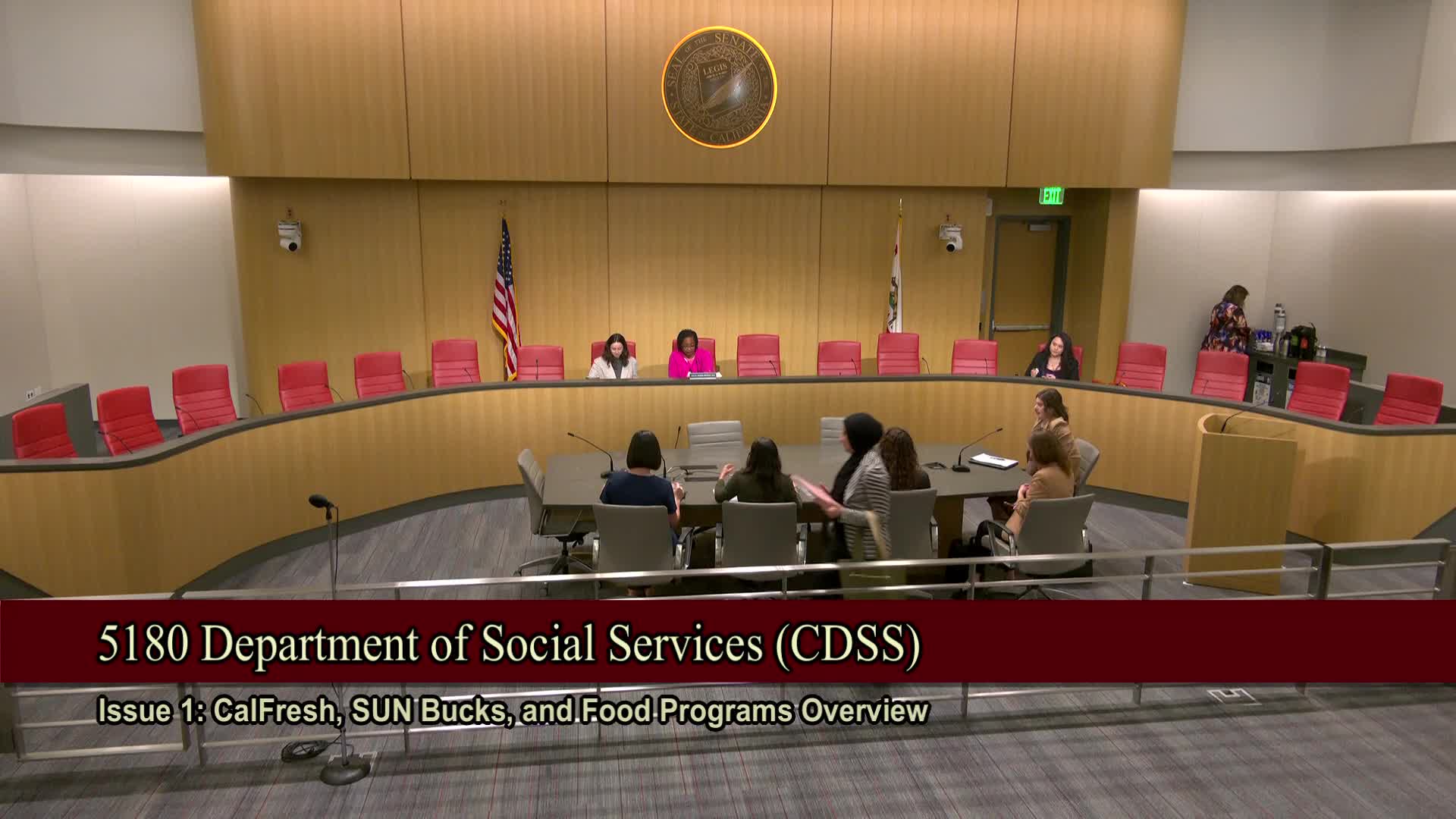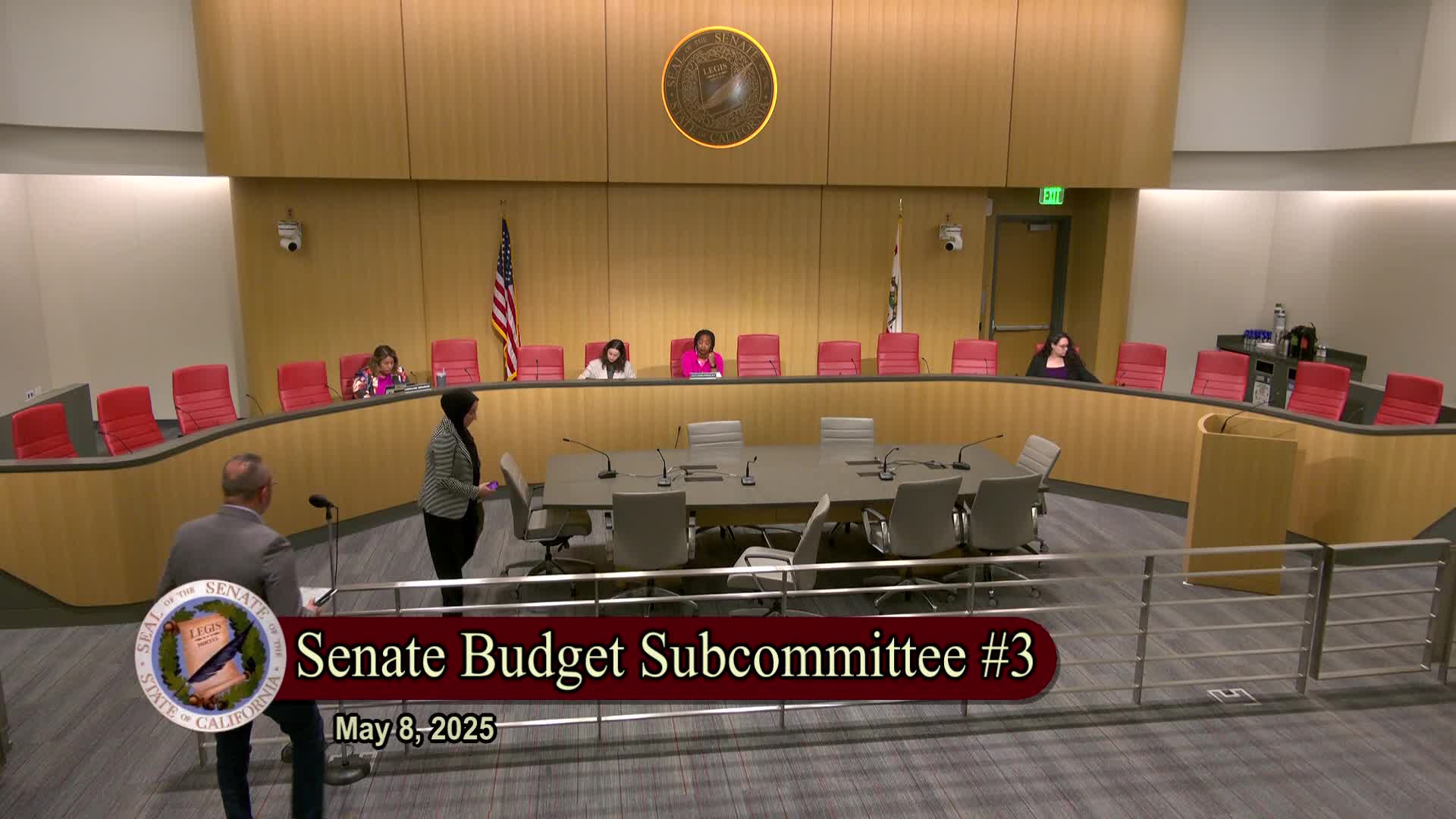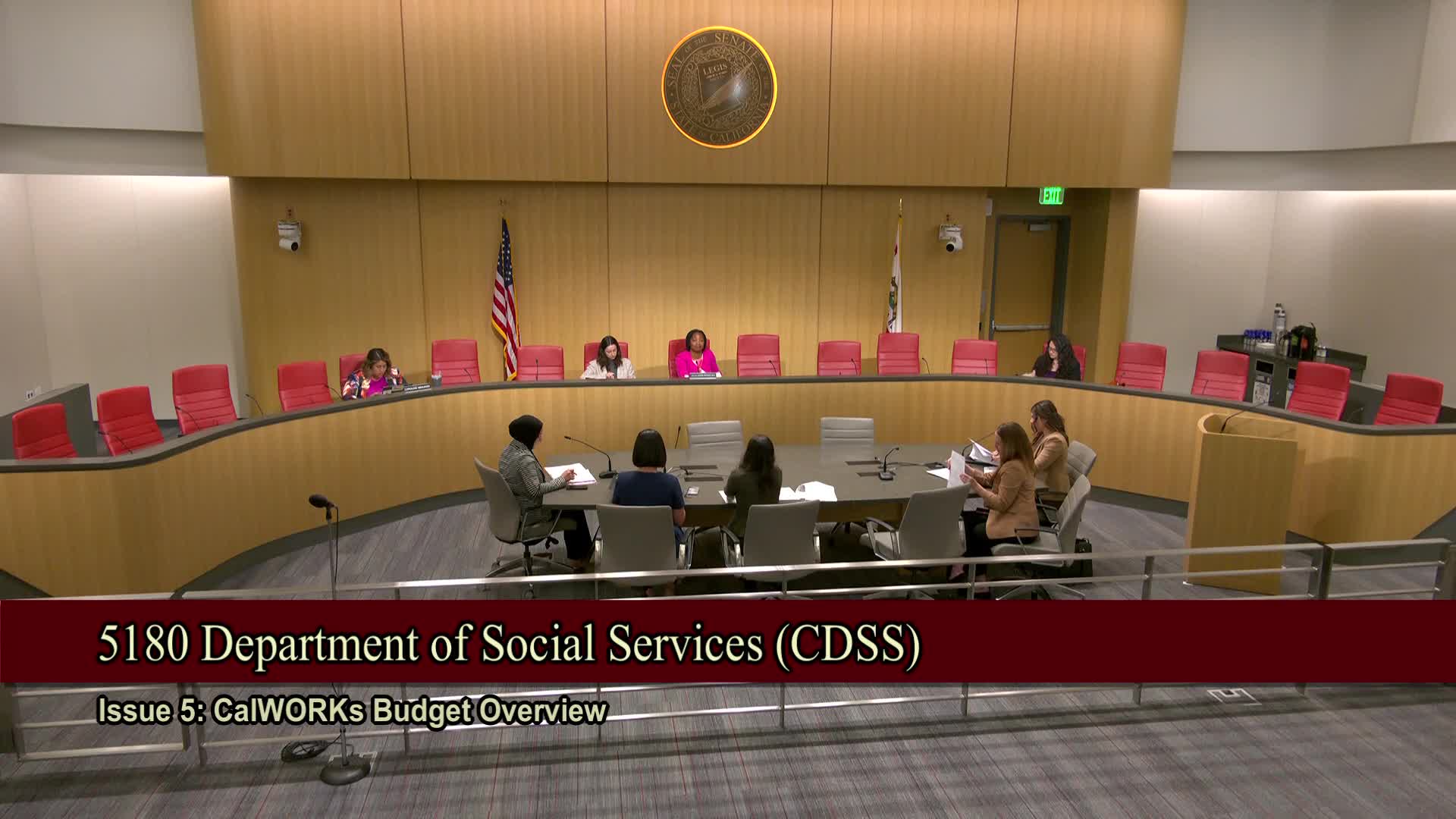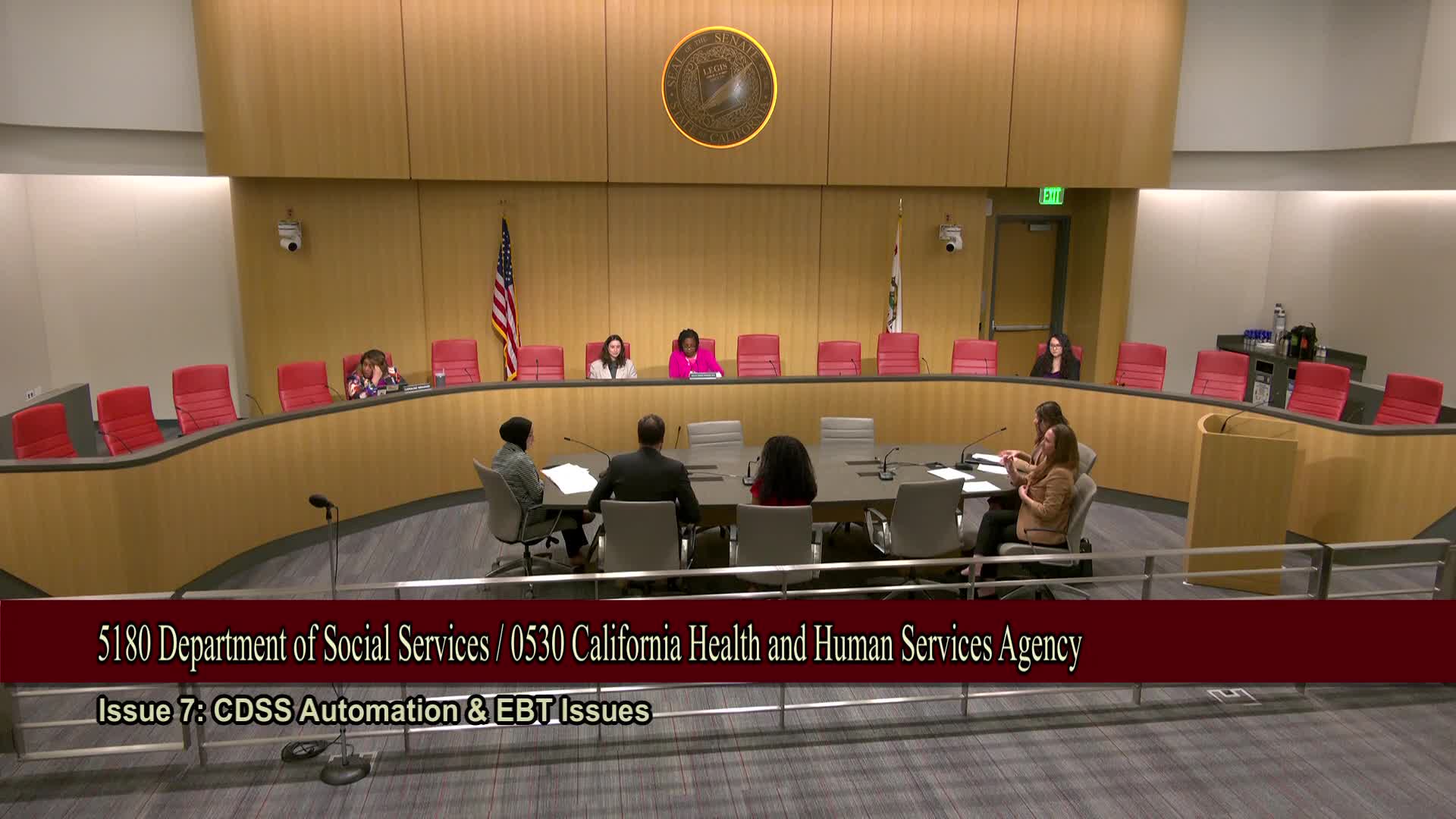Article not found
This article is no longer available. But don't worry—we've gathered other articles that discuss the same topic.

Senate subcommittee told federal funding cuts threaten California food-assistance programs

Community groups urge legislature to avert 'Promise Neighborhoods' and diaper‑bank funding cliff; food banks press for Cal Food restoration

Senate subcommittee reviews CalWORKs budget, single‑allocation concerns and "Reimagine CalWORKs" proposals

